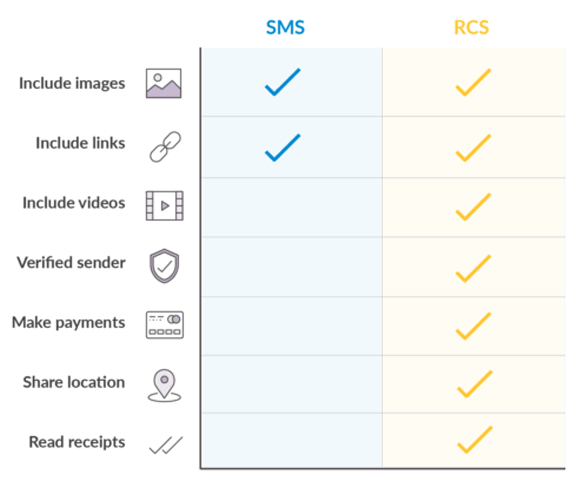SMS, or 'Short Message Service', is a text messaging service component available in most telephone, internet, and mobile device systems.
It uses standardized communication protocols to allow mobile devices exchange short text messages. While it has been tweaked and advanced from its original iteration, the underlying structure remains the same. This is why SMS is regarded as an old technology.
In an attempt to upgrade, four major U.S. carriers - AT&T, Verizon, T-Mobile, and Sprint - have each issued the same joint press release announcing the formation of “a joint venture” called the “Cross-Carrier Messaging Initiative” (CCMI).
This initiative is designed to ensure that the four carriers can go forward together, and replace SMS with a next-generation messaging standard: the RCS.
As explained by Michel Combes, President & CEO of Sprint, quoted at the company's web page announcing the initiative:

The first attempt of this CCMI, is to ship new Android app in 2020 to be the default messaging app for the mobile operating system, for phones sold by the four carriers. It is meant to support RCS features, including typing indicators, higher-resolution attachments, and better group chat.
CCMI also wants this initiative to be compatible with the global Universal Profile standard for RCS that has been adopted by other carriers around the world.
And to make sure about its interoperability, the CCMI is also working with other companies interested in RCS. One of which is Google, the big supporter of RCS.
In a statement from Sanaz Ahari, a product director at Google:

The four U.S. carriers are partnering together to also solve some early issues of RCS, which include:
- Not enough carriers have adopted it.
- Those that have adopted it, sometimes didn't adhere to the international standard Universal Profile.
- It has no end-to-end encrypted.
- Apple as one major smartphone maker, has no interest in RCS.
RCS stands for 'Rich Communication Services', and it's a communication protocol between mobile telephone carriers and between phone and carrier, aiming to replace SMS with a text-message system that is richer, provides phonebook polling, and can transmit in-call multimedia.
RCS is part of broader IP Multimedia Subsystem, and is also marketed as Advanced Messaging, Chat, joyn, SMSoIP, Message+ and SMS+.
The Rich Communication Suite industry initiative that provides the base of this protocol, was formed by a group of industry promoters in 2007.